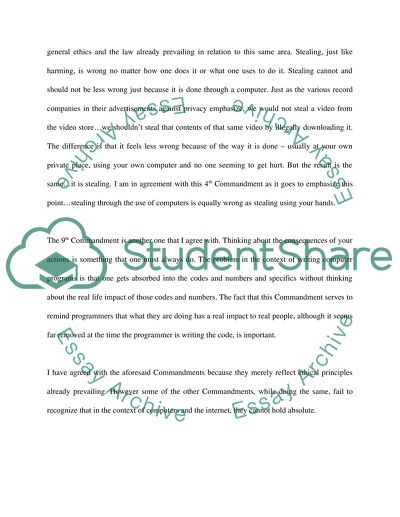Cite this document
(“Ethics Essay Example | Topics and Well Written Essays - 750 words - 4”, n.d.)
Retrieved from https://studentshare.org/environmental-studies/1416524-ethics
Retrieved from https://studentshare.org/environmental-studies/1416524-ethics
(Ethics Essay Example | Topics and Well Written Essays - 750 Words - 4)
https://studentshare.org/environmental-studies/1416524-ethics.
https://studentshare.org/environmental-studies/1416524-ethics.
“Ethics Essay Example | Topics and Well Written Essays - 750 Words - 4”, n.d. https://studentshare.org/environmental-studies/1416524-ethics.


